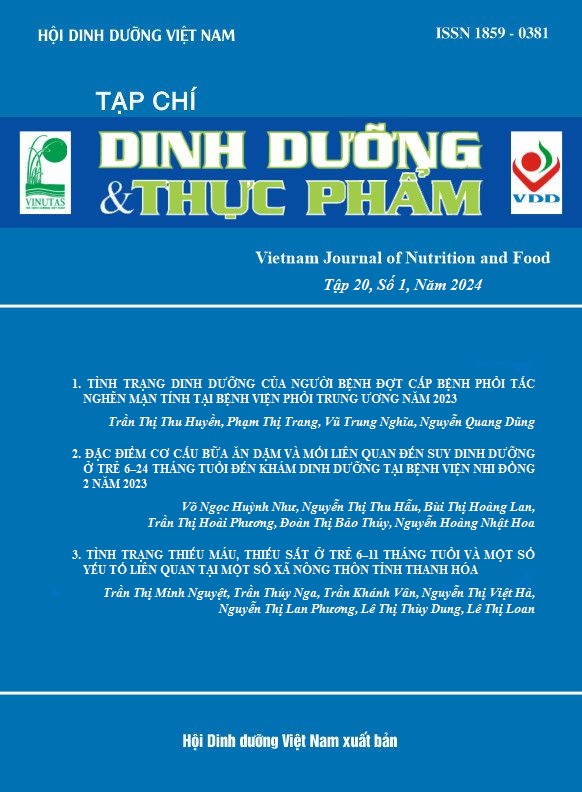THE EFFECTS OF RATIO WITH TIME OF EXTRACTION OF RED ARTICHOKE FLOWERS AND TIME TO COOKING CANDY ON THE SENSORY AND NUTRITIONAL VALUE OF RED ARTICHOKE FLOWERS ADD PASSION FRUIT JUICE GEL CANDY
Main Article Content
Abstract
Aims: To investigate the effects of ratio and time of extraction of red artichoke flowers on nutritional value and sensory value of the product and investigate the effects of cooking times on the nutritional value and sensory value of the product.
Methods: The study was conducted at a laboratory scale. Hardness measurement (BROOKFIELD texture analysis machine). The vitamin C content of the sample was determined by titration with iodine, determined the Anthocyanin content by differential pH method, and sensory evaluation of the product by QDA method. All experiments were performed three times to obtain data for statistical analysis and use the statistical program Stagraphics Centurion XV to calculate ANOVA.
Results: The ratio and extraction time of red artichoke flowers had a strong influence on the color values L*, a* and affects the anthocyanin content, vitamin C content and nutritional value of the product. Candy cooking time of gel candy affected the color value L*, a*, hardness and nutritional value of the product.
Conclusion: Red artichoke flowers supplemented with passion fruit gel candy had high nutrient contents, good texture and flavor if the rate of mixing artichoke flowers was 10% compared to water and the flower extraction time was 10 minutes, then it was mixed with 30% sucrose, 10% gelatin, 0.9% pectin, 10% passion fruit juice, and finally the candy was cooked for 15 minute.
Keywords
Artichoke flowers, passion fruit, sensory value, nutritional value
Article Details
References
2. Quách Đĩnh, Nguyễn Văn Tiếp, Nguyễn Văn Thoa.Công nghệ sau thu hoạch và chế biến rau quả, Hà Nội. Nxb Khoa học và Kỹ thuật, 1996.
3. Lee OS, KIM JW, Han SH, et al. The stabilization of L-ascorbic acid in aqueous solution and water-in-oil-in-water double emulsion by controlling pH and electrolyte concentration. Journal of Cosmetic Science. 2004;55:1-12.
4. Phạm Văn Sổ & Bùi Thị Như Thuận. Kiểm nghiệm lương thực, thực phẩm. Hà Nội: Nxb Khoa học và Kỹ thuật, 1991.
5. Trần Xuân Hiển. Tài liệu giảng dạy môn Đánh giá cảm quan thực phẩm. Trường Đại học An Giang, 2014.
6. Deylami MZ, Rahman RA, Tan CP, Bakar J, Olusegun L. Effect of blanching on enzyme activity, color changes, anthocyanin stability and extractability of mangosteen pericarp. Journal of Food Engineering. 2016; 178:12-19.
7. Bree IV, Baetens JM, Samapundo S, Devlieghere F, Laleman R, Meulenaer DB. Modelling the degradation kinetics of vitamin C in fruit juice inrelation to the initial headspace oxygen concentration. Food Chem. 2012;134:207–214.
8. Vũ Thị Thanh Đào. Công nghệ sản xuất đường và chế biến bánh kẹo. Trường Đại học An Giang, 2015.


